|
Books Should Be Free Loyal Books Free Public Domain Audiobooks & eBook Downloads |
|
|
Books Should Be Free Loyal Books Free Public Domain Audiobooks & eBook Downloads |
|
Literature |
|---|
|
Book type:
Sort by:
View by:
|
By: Kate Douglas Wiggin (1856-1923) | |
|---|---|
 Penelope's English Experiences
Penelope's English Experiences
Penelope's English Experiences is a fictional travelogue, which documents the experiences of three American ladies on a visit to England. Included are scenes in London and the village of Belvern, containing fanciful sketches of a West-end ball, portraits of domestic originals, etc., characterized by humorous trifling and droll exaggeration of English traits. By the author Mother Carey's Chickens, A Cathedral Courtship, etc. | |
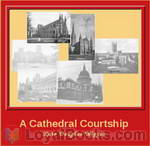 A Cathedral Courtship
A Cathedral Courtship
A romantic comedy. A pretty young American girl tours English Cathedrals, with her very blue-blooded Aunt. Then boy meets girl. Boy chases girl. Boy loses girl. Boy finds girl. Finally, girl catches boy with the help of a mad bull. | |
 Rose O' The River
Rose O' The River
Rose Wiley is a pretty country girl. She's engaged to Stephen Waterman, a country boy. She is quite content, until Claude Merril, a man from Boston, tells her that her love is ruining Stephen's life. A cute coming-of-age novel. | |
By: George Ade (1866-1944) | |
|---|---|
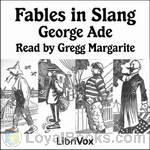 Fables in Slang
Fables in Slang
While a columnist for The Chicago Record humorist George Ade penned numerous “fables” which were subsequently collected into books. Fables in Slang is the first of these collections. It contains 26 satirical stories that lampoon phrenologists, idealists, snobs, fanatics and other ignorant fools of the day, most of which still wander through our modern lives. Jean Shepherd considered Ade a predecessor who made writers like James Thurber, Mike Royko, and himself possible. Fables in Slang was first published in 1899 by Herbert S. Stone and Company. | |
By: Edmond Rostand (1868-1918) | |
|---|---|
 Cyrano de Bergerac
Cyrano de Bergerac
One of the most beloved French plays of all time, Cyrano de Bergerac is a clever and tragic tale of truth concealed and love denied. Its titular character is a proud, daring swordsman and genius poet who has one terrible flaw: an abnormally large nose. Too afraid of rejection to confess his love for the beautiful Roxane, Cyrano helps her brainless but handsome suitor Christian to woo her, providing him with love letters while resolutely keeping his own passion a secret. | |
By: Mayne Reid (1813-1883) | |
|---|---|
 Gwen Wynn - A Romance of the Wye
Gwen Wynn - A Romance of the Wye
Gwendoline Wynn, our heroine, is an orphan-heiress who lives on the river Wye. She will live with aunt until she comes of age and her money. Vivian Ryecroft, our hero and a captain in the Hussars, is on a leave of absence in Herefordshire, salmon fishing on the Wye. Gwen and Vivian have a chance, and brief, encounter on the Wye, and Vivian is enchanted. Will our hero and heroine find love? Will it last? | |
By: Thomas Mayne Reid (1818-1883) | |
|---|---|
 Scalp Hunters
Scalp Hunters
"Unroll the world’s map, and look upon the great northern continent of America. Away to the wild west, away toward the setting sun, away beyond many a far meridian, let your eyes wander. Rest them where golden rivers rise among peaks that carry the eternal snow. Rest them there. You are looking upon a land whose features are un-furrowed by human hands, still bearing the marks of the Almighty mould, as upon the morning of creation; a region whose every object wears the impress of God’s image... | |
 Giraffe Hunters
Giraffe Hunters
The Young Yägers, Hans and Hendrik Von Bloom, Groot Willem and Arend Van Wyk, are again on a hunting expedition. This time, the reader will find their old acquaintances in Africa, on the banks of the Limpopo River. Here our young adventurers are looking for sport and wild animals. | |
By: Sara Ware Bassett (1872-1968) | |
|---|---|
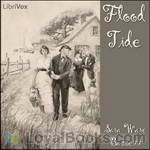 Flood Tide
Flood Tide
Willie Spence may have been a bit eccentric by most standards, but he had a knack for creating gadgets in his small workshop at his home on Cape Cod. Whenever he was 'ketched' by an 'idee' he had to see it to completion, and always did. His small cottage on the Cape had become a labyrinth of string and wires tacked here and there so as to make life a bit challenging for his housekeeper Celestina. But she and most everyone else among the coastal towns and villages loved the old man for all his eccentricities as Willie spent his waning years just waiting for his ship to come in. | |
 Story of Wool
Story of Wool
Mr. Clark and Donald spend a year out west to the Crescent Ranch in Idaho learning about raising sheep. | |
By: Richard Brinsley Sheridan (1751-1816) | |
|---|---|
 The Rivals
The Rivals
The play is set in Bath in the 18th century, a town legendary for conspicuous consumption and fashion at the time. Wealthy, fashionable people went there to "take the waters", which were believed to have healing properties. The plot centres on the two young lovers, Lydia and Jack. Lydia, who reads a lot of popular novels of the time, wants a purely romantic love affair. To court her, Jack pretends to be "Ensign Beverley", a poor officer. Lydia is enthralled with the idea of eloping with a poor soldier in spite of her guardian, Mrs... | |
 School For Scandal
School For Scandal
Richard Brinsley Sheridan's comedy was first performed in 1777 and focuses on the intrigues and scandals of the British upper classes. Lady Sneerwell wants to marry Charles Surface, while Joseph Surface wants to marry Maria, an heiress and ward of Sir Peter Teazle. Maria, however, prefers Charles over Joseph. In order to detach her from Charles, Lady Sneerwell and Joseph spread rumors about an affair between Charles and Lady Teazle, Sir Peter's new young wife. Meanwhile, Sir Oliver Surface, newly returned from the East Indies, assumes various disguises to test his nephews' characters. Misunderstandings, mistaken identities, gossip, and bad behavior abound in this uproarious comedy. | |
By: A. A. Milne (1882-1956) | |
|---|---|
 Happy Days
Happy Days
Although best known for his Winnie the Pooh stories, A.A. Milne spent years as an editor at the English humor magazine Punch. These sprightly essays were chosen from the hundreds he wrote during that period. As usual, they are funny, wry, and poke fun at almost all of our human foibles. There are 6 short one act plays that he wrote to demonstrate the 6 allowable plots for amateur playwrights and they are absolutely hilarious. The other topics run the gamut from dogs to dates. | |
By: Clara E. Laughlin (1873-1941) | |
|---|---|
 Everybody's Lonesome
Everybody's Lonesome
Twenty-year-old Mary Alice is bored with her home life and envious of the beautiful, poised, popular girls she sees at parties. At her mother's advice, she reluctantly visits her Godmother in New York, who teaches Mary Alice a little homemade "magic" and the one great Secret that will put her at ease with other people. How can Mary Alice learn to use these gifts to bring happiness into her own life and other lives? Although this charming novelette is subtitled "A True Fairy Story," it reveals that most of the "magic" in life can be found within ourselves. (Introduction by Jan MacGillivray) | |
By: B. M. Bower (1871-1940) | |
|---|---|
 Lure of the Dim Trails
Lure of the Dim Trails
Phil Thurston was born on the range where the trails are dim and silent under the big sky. It was the place his father loved, the place he had to be. After the death of his father when he was five, his mother brought him back to the city, where he grew up and became a writer. To revive his stale writing, he returns to the West, and may just find what he is really missing. | |
By: Elbert Hubbard (1856-1915) | |
|---|---|
 Mintage
Mintage
Elbert Hubbard is best known as the author of the "Little Journeys To The Homes of Famous People". These 11 short stores show the side of him that celebrated caring, friendship love among humans. The first describes how 5 frightened orphan children from a foreign country were cared for on a railroad journey of a thousand miles; all by strangers without any planning and without a word of English being spoken or needed. He observed caring human men and women of all ages doing whatever was necessary to see they reached their destination in whatever comfort could be provided... | |
By: George Wharton Edwards (1859-1950) | |
|---|---|
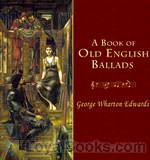 A Book of Old English Ballads
A Book of Old English Ballads
In this selection... the aim has been to bring within moderate compass a collection of these songs of the people which should fairly represent the range, the descriptive felicity, the dramatic power, and the genuine poetic feeling of a body of verse which is still, it is to be feared, unfamiliar to a large number of those to whom it would bring refreshment and delight. | |
By: Rudolf Erich Raspe (1737-1794) | |
|---|---|
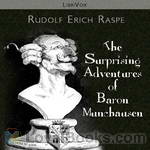 The Surprising Adventures of Baron Munchausen
The Surprising Adventures of Baron Munchausen
The stories about Münchhausen were first collected and published by an anonymous author in 1781. An English version was published in London in 1785, by Rudolf Erich Raspe, as Baron Munchhausen's Narrative of his Marvellous Travels and Campaigns in Russia, also called The Surprising Adventures of Baron Munchhausen. It is not clear how much of the story material derives from the Baron himself; however, it is known that the majority of the stories are based on folktales that have been in circulation for many centuries before Münchhausen's birth. | |
By: Dinah Maria Craik (1826-1887) | |
|---|---|
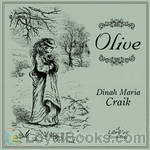 Olive
Olive
Inspired by Jane Eyre, Dinah Maria Craik's 1850 novel, Olive, was one of the first to feature a disabled central character. 'Slightly deformed' from birth, Olive believes that she will never be able to marry like other women, so she devotes her life to her art, her mother, and above all, her religion. It takes a dark secret from the past and a new, fascinating acquaintance, to make her realize what her life could be. | |
By: John W. Campbell (1910-1971) | |
|---|---|
 The Ultimate Weapon
The Ultimate Weapon
The star Mira was unpredictably variable. Sometimes it was blazing, brilliant and hot. Other times it was oddly dim, cool, shedding little warmth on its many planets. Gresth Gkae, leader of the Mirans, was seeking a better star, one to which his "people" could migrate. That star had to be steady, reliable, with a good planetary system. And in his astronomical searching, he found Sol.With hundreds of ships, each larger than whole Terrestrial spaceports, and traveling faster than the speed of light, the Mirans set out to move in to Solar regions and take over... | |
By: John Wood Campbell Jr. (1910-1971) | |
|---|---|
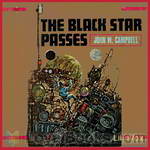 The Black Star Passes
The Black Star Passes
A sky pirate armed with superior weapons of his own invention... First contact with an alien race dangerous enough to threaten the safety of two planets... The arrival of an unseen dark sun whose attendant marauders aimed at the very end of civilization in this Solar System. These were the three challenges that tested the skill and minds of the brilliant team of scientist-astronauts Arcot, Wade, and Morey. Their initial adventures are a classic of science-fiction which first brought the name of their author, John W. Campbell, into prominence as a master of the inventive imagination. | |
By: John Wood Campbell. Jr. (1910-1971) | |
|---|---|
 Islands of Space
Islands of Space
As Earth's faster-than-light spaceship hung in the void between galaxies, Arcot, Wade, Morey and Fuller could see below them, like a vast shining horizon, the mass of stars that formed their own island universe. Morey worked a moment with his slide rule, then said, "We made good time! Twenty-nine light years in ten seconds! Yet you had it on at only half power...." Arcot pushed the control lever all the way to full power. The ship filled with the strain of flowing energy, and sparks snapped in the air of the control room as they raced at an inconceivable speed through the darkness of intergalactic space... | |
 Invaders from the Infinite
Invaders from the Infinite
The famous scientific trio of Arcot, Wade and Morey, challenged by the most ruthless aliens in all the universes, blasted off on an intergalactic search for defenses against the invaders of Earth and all her allies. World after world was visited, secret after secret unleashed, and turned to mighty weapons of intense force--and still the Thessian enemy seemed to grow in power and ferocity. Mighty battles between huge space armadas were but skirmishes in the galactic war, as the invincible aliens savagely advanced and the Earth team hurled bolt after bolt of pure ravening energy--until it appeared that the universe itself might end in one final flare of furious torrential power.... | |
By: The Gawain Poet | |
|---|---|
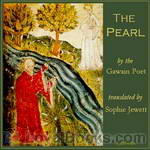 Pearl
Pearl
Written in the 14th century by the Gawain poet, 'Pearl' is an elegiac poem reflecting on the death of a young daughter, pictured as a pearl lost in a garden. It is considered a masterpiece of Middle English verse, incorporating both the older tradition of alliterative poetry as well as rhyme, centered around the development of an intricately structured image. Sophie Jewett's translation from the Northern dialect of the original renders much of the poem's liveliness and beauty accessible to modern readers, whilst encouraging them to pursue their reading further, to read the original itself.This recording is dedicated to the memory of Pearl Jean Shearman, 1914-2012. | |
By: Eleanor H. Porter (1868-1920) | |
|---|---|
 Across The Years
Across The Years
These 18 wonderful short stories by Eleanor H. Porter, the author of Pollyanna, deal with those marvelous and maddeningly frustrating creatures: human beings. As always, Porter describes real people with sensitivity and an insight into all of their variety that makes you say "I knew someone just like that". She is able to capture the faded, but not quite extinguished, dreams of the elderly and the bright hopes of youth. The theme of this collection is how we humans deal with life and love throughout our lives, "Across the Years", no matter where we are or what era we live in. | |
By: Charles Clark Munn (1848-1917) | |
|---|---|
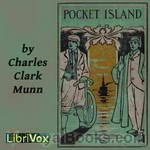 Pocket Island
Pocket Island
Along the coast of Maine are littered thousands of small islands. One such, named 'Pocket Island' by the locals was so called because of a pocket formed twice daily by the waning of the tides. The coast of Maine holds many secrets and legends, and Pocket Island was no exception. Subtitled "A Story of Country Life in New England", this story holds such varied and fascinating glimpses into the lives of a few individuals, and is not limited to merely a story of ghosts, of war, of barn dances, friendship, tales of rum-runners, smugglers, and seafarers... | |
By: Mary Grant Bruce (1878-1958) | |
|---|---|
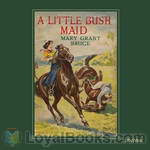 A Little Bush Maid
A Little Bush Maid
An Australian childrens' classic about life on a ranch around the same time of A Little Florida Lady, with a similarly plucky tomboy heroine. Also, like the latter story, expect some racial stereotyping of Asian and Aboriginal characters. This originally ran as a newspaper serial and it shows in the episodic nature of the chapters, such as a vivid trip to the circus sandwiched by talk of a mad killer and an unexpectedly sentimental ending. | |
By: Katherine Thurston (1875-1911) | |
|---|---|
 The Masquerader
The Masquerader
The Masquerader is one of two Katherine Cecil Thurston’s books that appeared on the Publisher’s Weekly best-sellers list in 1905. The Masquerader is part mystery, part romance and part political thriller – all tied up in one neat package. Nature has a way of sometimes making two people nearly indistinguishable in appearance. Such is the premise for this book. John Chilcote, a British politician, and John Loder, a man down on his luck meet by accident one night during one of London’s worst fogs... | |
By: Dora Sigerson Shorter (1866-1918) | |
|---|---|
 Old Maid (Shorter)
Old Maid (Shorter)
Dora Maria Sigerson Shorter was an Irish poet and sculptor, who after her marriage in 1895 wrote under the name Dora Sigerson Shorter. She was born in Dublin, Ireland, the daughter of George Sigerson, a surgeon and writer, and Hester (née Varian), also a writer. She was a major figure of the Irish Literary Revival, publishing many collections of poetry from 1893. Her friends included Katharine Tynan, Rose Kavanagh and Alice Furlong, writers and poets. | |
By: Harold Frederic (1856-1898) | |
|---|---|
 The Damnation of Theron Ware
The Damnation of Theron Ware
The Damnation of Theron Ware (published in England as Illumination) is an 1896 novel by American author Harold Frederic. It is widely considered a classic of American realism. The novel reveals a great deal about turn-of-the-century provincial America, religious life, and the depressed state of intellectual and artistic culture in small towns.The novel centers on the life of a Methodist pastor named Theron Ware who has recently moved to a fictional small town in the Adirondack Mountains of upstate New York, which Frederic modeled after Utica, New York... | |
By: Elizabeth Stuart Phelps (1844-1911) | |
|---|---|
 The Story of Avis
The Story of Avis
Elizabeth Stuart Phelps's 1877 novel is set in a New England college town, and focuses on Avis Dobell, a professor's daughter. Avis is a talented painter, and bucks against the constraints placed on women in the 19th century. She wants to pursue a career as an artist and rejects marriage and motherhood, until she meets the charismatic young professor Philip Ostrander. Phelps's novel is a beautifully-written examination of the conflicts between marriage and career for women that is still relevant today. | |
By: Lagerlöf, Selma (1858-1940) | |
|---|---|
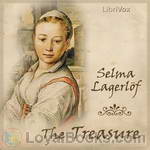 The Treasure
The Treasure
Selma Lagerlöf was born in Vaermland, Sweden, in 1858 and enjoyed a long and very successful career as a writer, receiving the Nobel-Prize in Literature in 1909. She died in Vaermland in 1940. The Treasure (Herr Arnes penningar) is a fairly short Novel, both a Drama and a Ghost Story. Published in 1904 and the English translation in 1923. The story is set in Bohuslaen on the West coast of Sweden in the middle of the 16th Century. Herr Arne, the old Parson in Solberga and all his household are brutally murdered, and his great Treasure stolen... | |
By: Alfred, Lord Tennyson (1809-1892) | |
|---|---|
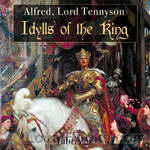 Idylls of the King
Idylls of the King
Idylls of the King, published between 1856 and 1885, is a cycle of twelve narrative poems by the English poet Alfred, Lord Tennyson which retells the legend of King Arthur, his knights, his love for Guinevere and her tragic betrayal of him, and the rise and fall of Arthur's kingdom. The whole work recounts Arthur's attempt and failure to lift up mankind and create a perfect kingdom, from his coming to power to his death at the hands of the traitor Mordred. Individual poems detail the deeds of various knights, including Lancelot, Geraint, Galahad, and Balin and Balan, and also Merlin and the Lady of the Lake. | |
 The Princess
The Princess
The Princess is a serio-comic blank verse narrative poem, written by Alfred Tennyson, published in 1847. The poem tells the story of an heroic princess who forswears the world of men and founds a women's university where men are forbidden to enter. The prince to whom she was betrothed in infancy enters the university with two friends, disguised as women students. They are discovered and flee, but eventually they fight a battle for the princess's hand. | |
By: Thomas Lodge | |
|---|---|
 Rosalynde or, Euphues' Golden Legacie
Rosalynde or, Euphues' Golden Legacie
This novel, which Shakespeare adapted in his pastoral comedy As You Like It, is the archetypal pastoral adventure. Two young persons of high birth, who have recently lost their fathers (one to death, one to banishment), fall in love but are separated almost at once and forced to flee to the Forest of Arden. There they meet again, but as Rosalynde is disguised for safety as a boy, named Ganymede, her lover Rosader does not recognize her. Once Rosader has confided his love to Ganymede, they play a game in which the "boy" poses as Rosalynde to give Rosader practice in wooing... | |
By: William Beckford (1760-1844) | |
|---|---|
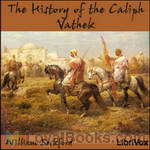 The History of the Caliph Vathek
The History of the Caliph Vathek
This is one of the earliest Gothic novels. The Caliph Vathek is one of the wealthiest and most powerful men who ever lived. But this is not enough for him. He seeks also forbidden knowledge, and doesn't care who he has to hurt to get it. Aided by his depraved mother Carathis, Vathek proceeds to damn himself, and those around him. (Introduction by MorganScorpion) | |
By: Robert Hugh Benson (1871-1914) | |
|---|---|
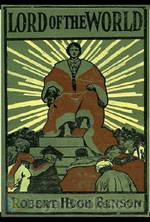 Lord of the World
Lord of the World
“Mr. Benson sees the world, four or five generations hence, free at last from all minor quarrels, and ranged against itself in two camps, Humanitarianism for those who believe in no divinity but that of man, Catholicism for those who believe in no divinity but that of God.” This apocalyptic novel from the early 1900's is sometimes deemed one of the first modern dystopias. | |
By: Elizabeth Inchbald (1753-1821) | |
|---|---|
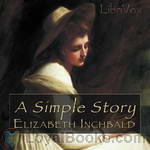 A Simple Story
A Simple Story
The story could really have been simple: Miss Milner, who is admired for her beauty and charm, could have been a socialite, marry a respectable and good looking man and be happy in the standards of her time. But if it was so, why would there be a book? Miss Milner, beautiful and charming as she is, announces her wish to marry her guardian, a catholic priest. But women in the 18th century do not declare their wishes or speak about their passions, and- after all- he is a catholic priest… And if he finds a way to marry her, is this her road to happiness? | |
By: Mary E. Wilkins Freeman (1852-1930) | |
|---|---|
 Evelina's Garden
Evelina's Garden
This is a long short story from 1899, approximately 95 minutes more or less, about a mysterious woman living virtually alone on the outskirts of a small New England town in a mansion with a magnificent garden. (Introduction by BellonaTimes) | |
By: Archibald Lampman (1861-1899) | |
|---|---|
 Winter Evening
Winter Evening
Archibald Lampman was a Canadian poet. "He has been described as 'the Canadian Keats;' and he is perhaps the most outstanding exponent of the Canadian school of nature poets." The Canadian Encyclopedia says that he is "generally considered the finest of Canada's late 19th-century poets in English." Lampman is classed as one of Canada's Confederation Poets, a group which also includes Charles G.D. Roberts, Bliss Carman, and Duncan Campbell Scott. | |
By: Roswell Field (1851-1919) | |
|---|---|
 The Romance of an Old Fool
The Romance of an Old Fool
A light-hearted account of a successful middle aged widower who chances to visit the small town in which he grew up to renew old acquaintances and perhaps reflect on his successes since his departure.This visit, however, becomes far more to him than he would have imagined, as he finds that one of his dearest childhood girlfriends had died not long after his departure, and the widower envisions a relationship with none other than her daughter, who he senses to be her mother incarnate. | |
By: Charles Goddard (1879-1951) | |
|---|---|
 The Perils of Pauline
The Perils of Pauline
The Perils of Pauline is one of the first damsel in distress serials. The story is complete with undaunted hero, courageous damsel, unscrupulous villains galore, and other worldly interest. Before getting married, Pauline wants to experience the world and have adventures. When her guardian dies and leaves her an estate in trust of his secretary, adventures suddenly become more hazardous. Pauline charters aeroplanes, meets untrustworthy pirates, braves dangerous China Town, flies in a hot air balloon, adventures in the Wild West, encounters international spies, and escapes many other perils with the aid of her would-be fiancé, Harry, and an Egyptian mummy. | |
By: Charles Goddard and Paul Dicky | |
|---|---|
 The Ghost Breaker
The Ghost Breaker
The Ghost Breaker is a drama and haunted house horror complete with heroes, villains, and a Princess. The Ghost Breaker was originally a screenplay and would later be made a drama film directed by Cecil B. DeMille. | |
By: Ernest Poole (1880-1950) | |
|---|---|
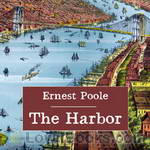 The Harbor
The Harbor
The Harbor was written in 1915 by Ernest Poole. The novel is considered by many to be one of Poole’s best efforts even though his book, The Family won a Pulitzer Prize. The Harbor is a fictional account of life on a Brooklyn waterfront through the eyes of Billy as he is growing up. The novel starts with Billy the child, living on the harbor with his father, mother, and sister, Sue. During this time he also meets Eleanor who, at that time, he considers to be strange. She later becomes an important character in the novel... | |
 His Family
His Family
The 1910s is historically considered the decade of greatest social change in history. It saw the advent and proliferation of the automobile, electricity, lighting, radio, telephone and cinema. Our present time of change is actually quite tame in comparison, though also breathless. His Family is a tale of a widowed father, working to manage this decade of change as it affects his family in New York City. His Family was the first winner of the Pulitzer Prize for literature in 1919. | |
By: Bertrand Sinclair (1881-1972) | |
|---|---|
 The Hidden Places
The Hidden Places
Hollister, returning home from the war physically scarred but otherwise healthy and intact, finds life difficult among society, and so chooses to roam about a bit seeking a future for himself. He eventually leads himself to a remote area in British Columbia, which begins the tale of the next phase of his life; a life which becomes far richer in totality than he would have imagined in his old unwelcoming haunts. A life among the hidden places. | |
By: Frank Williams (1887-?) | |
|---|---|
 The Harbor of Doubt
The Harbor of Doubt
Young Code Schofield had lost his schooner May Schofield in an Atlantic gale a few months ago, and now the townspeople on the small island of Grande Mignon off the coast of New Brunswick were beginning to talk suspiciously of the events surrounding that loss. Insurance investigators have been summoned to investigate, friends are alienating themselves from Code, and he finds himsef challenged by even those he's known and trusted his whole life. Does Code Schofield have anything to prove, and if so, to whom, and why? | |
By: Harriet E. Wilson (1825-1900) | |
|---|---|
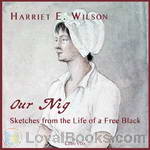 Our Nig, or, Sketches from the Life of a Free Black, In A Two-Story White House
Our Nig, or, Sketches from the Life of a Free Black, In A Two-Story White House
Frado is a colored girl, living in the USA a few years before the Civil War. She is abandoned by her own white mother in the house of the Bellmont's- where she is treated badly. This is a sad book, but Frado's cheerfulness and dignity will make you love her until the end. (Introduction by Stav Nisser) | |
By: William Godwin (1756-1836) | |
|---|---|
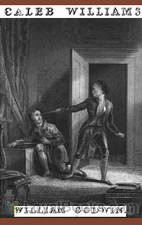 Caleb Williams or Things As They Are
Caleb Williams or Things As They Are
The novel describes the downfall of Ferdinando Falkland, a British squire, and his attempts to ruin and destroy the life of Caleb Williams, a poor but ambitious young man that Falkland hires as his personal secretary. Caleb accidentally discovers a terrible secret in his master’s past. Though Caleb promises to be bound to silence, Falkland, irrationally attached (in Godwin’s view) to ideas of social status and inborn virtue, cannot bear that his servant should possibly have power over him, and sets out to use various means–unfair trials, imprisonment, pursuit, to make sure that the information of which Caleb is the bearer will never be revealed... | |
By: Gilbert Parker (1862-1932) | |
|---|---|
 The Right of Way
The Right of Way
Charley Steele is a successful and brilliant Canadian lawyer. He has a nagging wife, Kathleen, and a lazy brother-in- law, Billy. In spite of his success, he is disillusioned with his life, drinks too much, and is deeply troubled by his agnosticism which leads to trouble and confusion. When Billy embezzles money, Charley discovers the theft and sets out to make things right. Charley however, ends up in a waterfront saloon where he encounters a barroom brawl and becomes unconscious. Charley loses his memory and ends up in the Canadian Northwoods where he falls in love with a pretty postmistress, Rosalie... | |
 Seats of The Mighty
Seats of The Mighty
| |
By: Alfred de Musset (1810-1857) | |
|---|---|
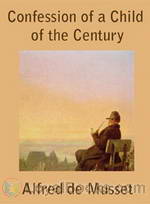 The Confession of a Child of the Century
The Confession of a Child of the Century
In this autobiographic novel, an aging man reflects on his past. We are witness to the relationships he has along the way, his mistakes, and finally- in the most unexpected and honorable way- the sudden developement of his belief in god. | |
By: Mildred Duff (1860-1932) | |
|---|---|
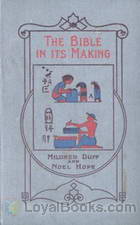 The Bible in Its Making - The Most Wonderful Book in the World
The Bible in Its Making - The Most Wonderful Book in the World
One great universal law runs through the realm of nature. Our Saviour gave it in a sentence: 'First the blade, then the ear, after that the full corn in the ear.' It is with the desire to show that the same law rules in another of God's creations — The Bible — that this little volume has been prepared. The Bible has as literally 'grown' as has an oak tree; and probably there is no more likeness between the Bible as we know it to-day and its earliest beginning, than we find between the mighty tree, and the acorn from which it sprang... | |
By: Benjamin Disraeli (1804-1881) | |
|---|---|
 Henrietta Temple
Henrietta Temple
The Armine family, in particular the young Ferdinand Armine, is in great financial difficulties. Ferdinand's grandfather has burdened the family estate with large debts, which his father did not manage to diminish. Ferdinand himself is not disposed to live with his small income alone, and during his time in Malta with his regiment, he incurs debts of his own. The only thing that can easily pay for his debts and restore the house of Armine now is for Ferdinand to marry well, and the chosen wife for him is his cousin Katherine, the heiress to their grandfather's wealth... | |
By: Romain Rolland (1866-1944) | |
|---|---|
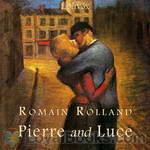 Pierre and Luce
Pierre and Luce
Pierre and Luce were an unlikely young pair who found themselves in the chaos of Paris during the war; Pierre, the shy, recently conscripted pacifist, and Luce, the free spirited artist in training, and both confused about the things going on around them. Why were these war birds flying overhead? Why these warning sirens, and occasional bombs exploding in the distance? Why did the government leaders, who didn't even know one another, hate and destroy so much? Why did these two delicate young adults find each other now? This story takes place between January 30 and Good Friday, May 29, 1918. (Introduction by Roger Melin) | |
By: Oliver Herford (1863-1935) | |
|---|---|
 This Giddy Globe
This Giddy Globe
Is there a genre called FUN? Yes, and this is it! Insanely humorous geography that will have you rolling on the floor laughing with your sides hurting. | |
By: Grace Isabel Colbron (1869-1943) | |
|---|---|
 The Case of the Golden Bullet
The Case of the Golden Bullet
Joseph Muller, quiet mannered detective, tries to solve the mystery of a man who died in his study, by a bullet hole in the chest. But all windows and doors were locked, from the inside. | |
By: William MacLeod Raine (1871-1954) | |
|---|---|
 Yukon Trail
Yukon Trail
The Yukon Trail: A Tale of the North (filmed as The Grip of the Yukon in 1928) is an adventure yarn from the prodigious output of William MacLeod Raine, who averaged nearly two western novels a year for some 46 years. Twenty of his novels have been filmed. Though Raine was prolific, he was a slow, careful, conscientious worker, intent on accurate detail, and considered himself a craftsman rather than an artist. (Adapted from Wikipedia) | |
 Tangled Trails
Tangled Trails
The aptly titled "Tangled Trails, A Western Detective Story" takes the listener through a web of curious incidents revolving around the murder of a prominent man in Denver. Kirby Lane was quite obviously the guilty party in the murder of his uncle. Lane, among others, had had a falling out with his uncle, the victim James Cunningham. But there were some who believed his nephew to be innocent of the hideous crime. Lane feared the guilty party to be a female bronco rider whom he had befriended, as her presence at the scene of the crime was quite evident, albeit only to him... | |
By: Tobias Smollett (1721-1771) | |
|---|---|
 Adventures of Roderick Random
Adventures of Roderick Random
I am Roderick Random. This is the contemporary story of my struggle against the adversity of orphan-hood, poverty, press gangs, bloody duels, rival fortune hunters, and the challenge to be well-dressed through it all. In the course of recounting my adventures to you, dear reader, I will give you a front row seat to the characters of English eighteenth century life including highway robbers, womanizing monks, debt-laden gallants, lecherous corrupt officials, effeminate sea captains, bloodthirsty surgeons, and my dear friend Miss Williams, a reformed prostitute... | |